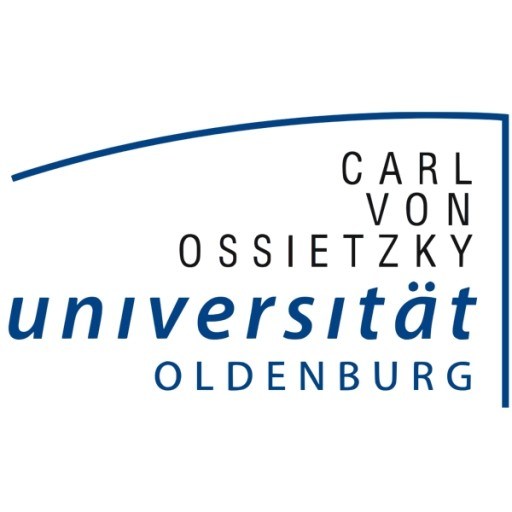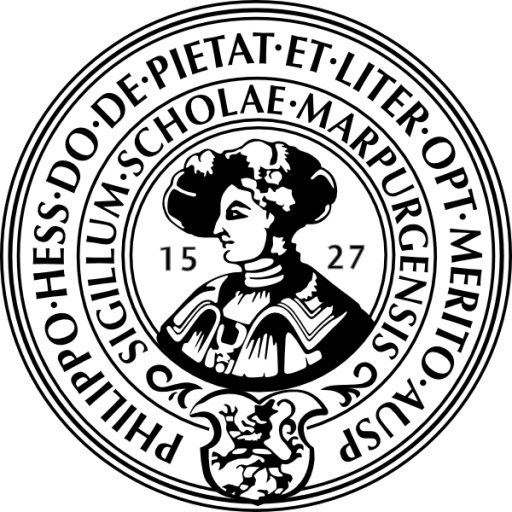The Master’s degree programme in Migration and Intercultural Relations (EMMIR) at the University of Oldenburg is an interdisciplinary program designed to equip students with comprehensive knowledge and practical skills to address complex challenges related to migration, intercultural communication, and social integration. This programme offers a unique combination of social sciences, human geography, and intercultural studies, fostering an understanding of migration processes, policies, and their impacts on societies and individuals. Students will explore contemporary issues such as refugee movements, integration strategies, multiculturalism, and international mobility, gaining insights into diverse cultural contexts and societal dynamics.
EMMIR emphasizes both theoretical foundations and applied research, encouraging students to critically analyze migration phenomena while developing practical solutions for stakeholders involved in migration management, policy-making, NGOs, and community organizations. The curriculum includes modules on migration theories, intercultural competence, ethnicity and identity, human rights, and global governance, complemented by practical training, internships, and thesis projects. The program promotes intercultural dialogue and intercultural skills, preparing graduates for international careers in policy analysis, social work, intercultural consulting, or further academic research.
Students benefit from an international learning environment, with lectures, seminars, and workshops conducted in English, fostering multilingual communication skills. The programme is supported by a strong network of international partners, including NGOs, governmental agencies, and research institutions, providing ample opportunities for networking and fieldwork. Graduates of the EMMIR programme are well-equipped to contribute to the development of inclusive societies and to professional fields involved in migration, integration, and intercultural relations at the local, national, and global levels. The interdisciplinary approach ensures a comprehensive understanding of migration issues, making the programme highly relevant in today’s interconnected world.
Educational organisation
Semester one will start in Oldenburg with a four-week intensive phase focusing on overviews as well as exemplary approaches to key areas in migration studies and intercultural relations. The semester will continue with modules on transdisciplinary methods/methodology and theory. For semester two, all students will move to Stavanger, they will contextualise their studies and furthermore concentrate on key areas and concepts.In their third semester, students will work in thematic research teams as the frame and support structure for their individual tasks in project based internships. Depending on their internship placement and/or the research focus module, students move on to another partner university, either in Europe or in Africa. For the fourth semester, supervision groups will be formed who attend the research colloquium at their selected partner university. Students will dedicate the fourth semester entirely to writing their thesis.
First Semester - University of Oldenburg, Germany
Intensive Phase: Studying Global Migration in the 21st Century
Evaluating and Developing Research Methods for Transcultural Contexts
- Research Methods for Transcultural Contexts
- Migration & Intercultural Relations: Disciplinary Perspectives - Theoretical Foundations
- Academic Writing
- Historical Dimensions of Migration
- Theorising Contemporary Migration & Intercultural Relations
- Global Migration - Contextualising African Migration
- German Language and Society
Second Semester - University of Stavanger, Norway
Emigration and Immigration: A Northern European Perspective
- Scandinavia: Historical and Contemporary Migration
- Norwegian Language and Culture
- Migration and Integration
- Migration, Borders and Citizenship
- Migration, Gender, Development: African Perspectives
- Migration, Gender, Culture
- Controversies over Multiculturalism
- Citizenship, Multiculturalism and Pluralism
Third Semester - all seven partner universities
Project-based Internship (thematic research teams)
- Research Foci: Migration & Multicultural Societies
- Diversity and Education
- Migration and Small Nations
- Representation, Ethnicity and Nation State
- Gender and Multiculturalism
- Theory and Methods in Migration Studies
- Forced Migration, Gender and (Post-)Conflict
Fourth Semester - all partner universities
- Proposal colloquium
- Dissertation and Research Colloquium (supervision groups)
Study abroad unit(s)
The full cohort will study the first two semesters in Oldenburg and Stavanger. In the second year, every student will follow his/her own study plan in order to succeed in EMMIR.EMMIR combines the mobility of the full cohort with individual research mobility and specialisation. The mobility path serves two purposes. On the one hand, it exposes students to different migration policies, various approaches to intercultural relations, several academic institutions, and economic, social, and cultural settings that are shaping migration processes as well as migrants' experiences. On the other hand, it allows students to develop individual research foci - drawing on the expertise of all involved partners and their specialisation in a decentralised way.
Internships
As part of the study programme, students will complete a project-based internship in the third semester (15 ECTS).Course objectives
EMMIR, combining the expertise of European and African universities, strongly encourages students to evaluate the existing body of knowledge critically and to conduct their own research projects. Students will have the benefits and challenges of an international learner group in which participants' different backgrounds will in themselves offer valuable intercultural perspectives for the study of migration.EMMIR aims at training young academics who contribute to improved information about the dynamics of migration and will become new professionals, consciously combining their specific national/regional/institutional situatedness and tasks with transnational perspectives, in the specific context of this programme primarily in Europe and Africa.
In order to train for a labour market demanding flexibility, self-motivation and problem-solving skills, the didactics of EMMIR are built around the idea that young professionals need state-of-the-art, in-depth knowledge in their field, plus the tools to present and negotiate, to apply and to conceptualise, to cooperate, administrate, and to manage. In cooperation with numerous agents and institutions in the field (associates and others) students will be exposed to specific labour market segments. They gather experience that can be actively linked to the study programme and their specialisation.
The cross-cutting aim is to promote problem-solving skills and the ability of knowledge transfer. Graduates will be qualified to pursue doctoral studies or employment in national and international governmental and non-governmental institutions dealing with migration, intercultural competence and education, in particular intersecting with development and/or gender issues.
Language requirements
EMMIR is taught in English. All applicants have to prove language proficiency. This may in certain cases be done by requesting an English language proficiency waiver. If you claim a waiver please elaborate on your language proficiency and be aware that the consortium might request further proof of language skills.Applicants whose native language is English must demonstrate proficiency in a second language relevant to migration studies by the application deadline at a level corresponding to the list on the website http://www.emmir.org/admission/requirements/#c48.
Applicants whose native language is not English or whose undergraduate instruction was not in English must demonstrate proficiency in English by the application deadline. Please check the website for further information and acceptable tests of English language competence.
Academic requirements
Please check the programme website for most recent information.EMMIR requires you to have at least a BA degree. The degree you base your application on needs to be in a field related to migration studies: i.e. social sciences, history, cultural studies, educational sciences, law, economics, development studies or journalism. You are required to send a document to prove your graduation.
Application process: EMMIR uses an online platform to facilitate the application process. Only after registering with your name and e-mail address will you be able to access the online application form. The application form must be completed online by filling in all the indicated boxes; you will be able to fill it in piece by piece, all data will be saved to our database. You will receive a summary of all your application details automatically via the application system. This confirmation has to be printed out, dated and signed, and attached to the whole application package including all the documentation required. The application process is only completed when the paper version of your application (details see below) has arrived at the University of Oldenburg within the given deadline.
Selection process: assessment of the applications will be carried out by the Consortium Committee Selection Board. Applicants who fail to provide necessary documentation will be excluded from further application procedures. Accepted applicants will receive a letter of acceptance from the Consortium Committee as well as an official notification from the University of Oldenburg. The notification of acceptance will contain further information about how to register for the programme and a deadline for registration. If this deadline is not met, the notification of acceptance will be null and void. The Consortium Committee Selection Board takes into account the following: relevance and level of academic qualification, relevance and level of research/professional experience, motivation, proficiency in second/third language.
Enrolment fees
Students will have to pay the partner universities' registration and social service fees at the universities they attend. These fees are not included in the participation costs.Costs of living
Oldenburg/Germany: 770 to 1,000 EUR per monthStavanger/Norway: about 1,150 EUR per month
Nova Gorica/Slovenia: about 600 EUR per month
Ceské Budejovice, Czech Republic: 400 to 600 EUR per month
Omdurman or Khartoum/Sudan: about 700 EUR per month
Mbarara/Uganda: about 500 EUR per month
Johannesburg/South Africa: not specified
Arrival support
Orientation week and other events:At the beginning of the Intensive Phase of EMMIR, the team of the International Student Office will assist you with organisational formalities and support you in getting settled at the University of Oldenburg.
Services and support for international students
EMMIR Advisers:At every EMMIR partner university, you will find a course director whom you may contact. The coordination of the EMMIR consortium is at the University of Oldenburg and here you will also find a team working in the programme management.
EMMIR teaching staff come from all partner universities and additional scholars and guest professors will participate in teaching and research.







